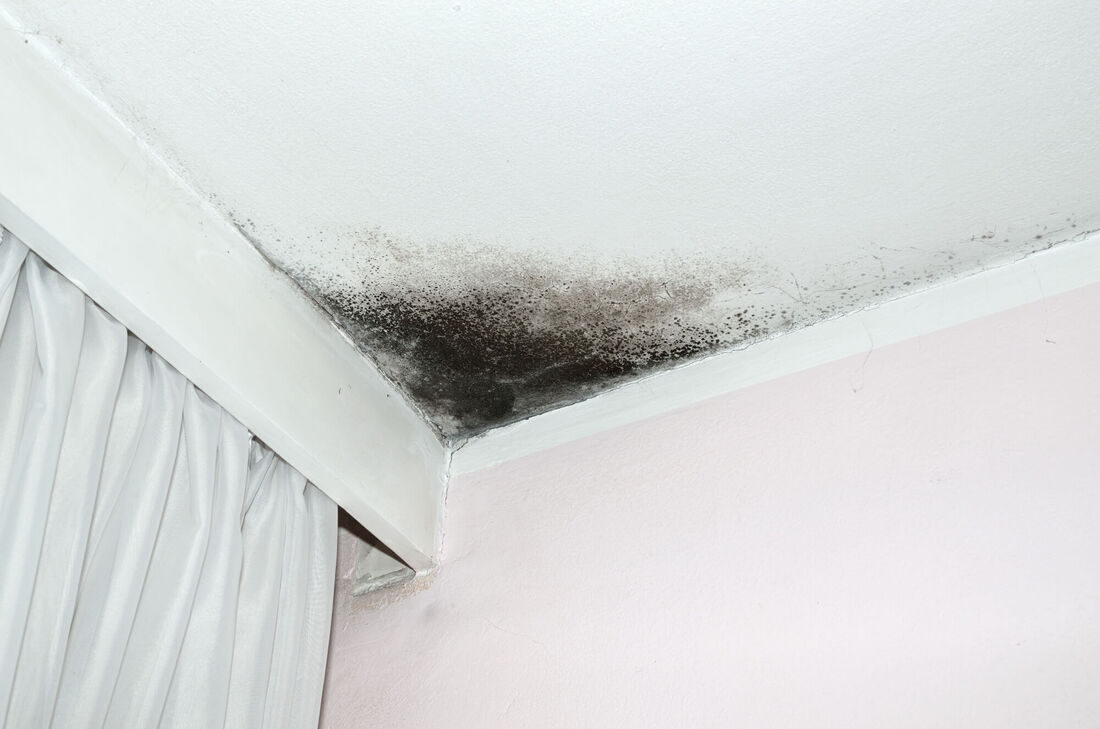|
As public adjusters in Boca Raton, we work with both commercial and residential policyholders to help them receive the right claim settlements for their property damage. This means filing an insurance claim after damage has occurred, but we also provide a service where we document the condition of your property before damage occurs.
Insurance companies ask commercial property owners for all kinds of information once a claim has been filed. Given the fact that it can be difficult or sometimes impossible to get this information, pre-loss inspections can be vital for getting your claim approved when the insurance company asserts the damage is pre-existing to the loss date or that the damage has been going on over a period of time. What Is a Pre-Loss Inspection? A pre-loss inspection is designed to provide you with a photo report and/or videos showcasing the current condition of your property. The methods we use for taking this documentation will vary depending on your needs. In most cases, we take extensive photos of the interior and exterior of your property together with a drone video of your roof. In other cases, a drone video of just the exterior of the property and roof, or just interior photos of the property is sufficient. Either way, if you ever need to file an insurance claim, the goal is to prove there is no pre-existing damage to your property. In Florida, pre-loss inspections are especially common before hurricanes or other catastrophic events such as fire, lightning strikes or hail damage. That said, pre-loss inspections can be useful any time you are concerned about having the documentation you will need to file a claim with your insurance company. Here are just some of the insurance claims where a pre-loss inspection report can help you:
What is the Difference Between a Commercial and Residential Pre-Loss Inspection? There are some areas of overlap between residential and commercial pre-loss inspections. For instance, both commercial and residential policyholders will want documentation regarding the current condition of your property. However, we also keep in mind the different kinds of claims a building owner and homeowner might have and have different pre-loss inspection packages. Why Business Owners Choose Reliant Insurance Adjusters for Pre-Loss Inspections When hiring a public adjuster for a pre-loss inspection, you want to look for knowledge and experience. An experienced public adjuster in Boca Raton will be able to anticipate problems before they occur or catch something you may not see. This will allow you to protect your property by repairing it timely. We also know what to look for and how to properly document your claim to avoid a claim denial. In some cases, this can mean letting you know about aspects of your property that are not covered in your policy. We discussed this in our recent blog about EIFS exclusion. While inspecting your property, we will also be able to provide examples specific to your property should they exist. Along with that, it is also useful to find someone with skills that can help during the information gathering process. My business partner, Scott Scovin, is a licensed drone pilot. By working with a drone pilot who understands insurance, you can rest easy knowing that all the information needed will be gathered. Are You Looking for a Public Adjuster in Boca Raton? You have come to the right place. At Reliant Insurance Adjusters, we have decades of experience helping commercial and residential property owners understand their policies and file claims with their insurance company. Whether you are currently in the process of filing your claim or you have been underpaid or denied for your claim, we can help. Are you prepared in the event of a hurricane or other catastrophic event such as fire? Either way, please do not hesitate to contact us. We are always happy to help property owners navigate the complicated world of insurance.
0 Comments
To most individuals, their property, whether commercial or residential property, is their largest and most important financial asset. Typically, it will appreciate in value, giving you an opportunity to financially gain by renovating, selling, or renting out your property. That said, this asset can quickly become volatile and problematic due to property damage caused by a water leak, fire, storm damage, fallen tree, or other incident.
When property damage occurs, your first step before beginning repairs is to file an insurance claim. There is a waiting period before repairs can begin. As a property owner, there are actually further steps you need to take prior to beginning repairs to your property. The following are the necessary steps you need to take before moving forward with repairs. #1 File the Claim Immediately After ensuring everyone is safe from the property damage, you must take quick action to notify your insurance company of the damage. However, not every claim is an insurance claim and you must understand what is causing the damage to your property in order to file the correct claim. Since there are certain obligations within your insurance policy that must be complied with, it is important to preserve the evidence and repairs should not begin until the claim process is documented and complete. Insurance companies require an investigation of the damage, the extent of which may vary. It is important to take emergency measures to protect your property from further damage, but not to complete all repairs prior all inspections being completed. If any repairs are completed during this stage and the evidence of your damage is removed, it is likely that your insurance company will deny your claim. #2 Wait Until the Claims Process is Complete The claims process typically takes about 30-90 days to complete. However, the timeframe may be extended depending on the extent of the damage to your property, what documentation is being requested and how many inspections are required by the insurance company. #3 Complete All Duties After Loss Every insurance policy outlines duties after loss that you are responsible for completing following property damage. Every policy is different, so make sure that you review your policy and have a good understanding of what the insurance company requires of you. A few common duties after loss include:
There are also timelines within which you need to submit this information. If you fail to comply with any of your duties after loss or begin repairs before the claim is finalized, the insurance company can deny your claim. Has Your Property Been Damaged? Has your property been damaged by water, wind, fire, or a water leak? We understand the claims process can be confusing and stressful, especially coupled with the stress of damage to your property. At Reliant Insurance Adjusters, our licensed public adjusters are experienced with the claim process that follows property damage and more importantly, the deadlines for submission of requested information. We prepare detailed estimates of damage with photographs. We are here to assist you with preparing all the necessary documents to submit to your insurance company and guide you through the entire claims process. Contact us today and let us know how we can assist you. Mold is one of the more complicated forms of property damage, in part because it is not always easy to determine whether the damage was caused by the mold itself or by the water that caused the mold.
What you should know when trying to get compensation for mold damage. Specifically, we will discuss the two policies that are most likely to provide coverage, as well as what to do if an insurance company denies your claim. Does Homeowners Insurance Cover Mold? There is no such thing as a “mold claim.” Instead of writing policies specifically centered around mold damage, insurance companies sell policies that can compensate for mold damage when the mold results from a peril that is covered under your policy. Mold in and of itself, it not a covered peril. Homeowners insurance will usually cover mold damage if it is caused by a covered peril for which you have coverage. For instance, let us say that your home was damaged when a water heater unexpectedly leaked. If the damage caused by the water heater is covered, and mold occurs as a result of the water damage, you will be covered. It is important to note that homeowners insurance does not provide coverage for lack of maintenance or wear and tear to your property. If the mold grew slowly over a period of time as a result of a leaky faucet, you will not be covered nor will you receive compensation if you file a claim. Does Flood Insurance Cover Mold? Much like homeowners insurance, there are some situations where a flood insurance policy will cover mold. The key is that you do everything in your power to prevent the mold from occurring. Under a flood insurance policy, it is sometimes difficult to get compensation for mold if you have access to your property but did not dry it timely. However, if your property was not accessible as a result of the flood, or there was no power and you were not able to remove the moisture and mold starts growing, it is possible you can get compensation for mold damage. It is important to understand that every insurance policy is different so it is ideal to speak with an insurance expert who can review your policies and explain your coverage. What If Your Insurance Company Denies Your Claim? Denied claims can be upsetting if you expect your insurance company to pay for damage to your property. A claim denial does not necessarily mean that the process is over. Instead, it is a good idea to find an experienced and knowledgeable public adjuster to review your policy and explain your coverage. If it is determined that your policy covers the damage, a knowledgeable public adjuster can reopen your claim. There are many methods we use to document and prove the damage is covered to help you get compensation for your claim. We have been successful in overturning many claim denials for our clients. Looking for Public Adjusters in Palm Beach County? You have come to the right place. At Reliant Insurance Adjusters, we work with property owners who want to understand their policy better and get the compensation they deserve. Our backgrounds, coupled with many years of experience, give us an advantage when dealing with insurance companies. We provide free policy reviews whether you have a claim or not. If you have been underpaid or denied for your insurance claim, please do not hesitate to contact us today. The bathroom is one of the most used rooms in every household. However, necessary maintenance and general upkeep can be easily overlooked even though it can save you money and protect your home from potential damage.
An often-overlooked form of maintenance is caulking the bathroom sinks, faucets, bathtubs, and showers. Caulk is an adhesive material that seals gaps and seams around pipes. It serves multiple purposes and failing to re-caulk your bathroom can allow future problems to pop up. Ideally, your bathroom should be re-caulked every five years to keep potentially dangerous issues from arising. Why You Should Re-Caulk Your Bathtub, Sinks & Faucets Here are three reasons why re-caulking your bathroom is highly important. #1 Preventing Mold and Mildew Due to its adhesive nature, caulk is an excellent sealant that prevents water from leaking through gaps and seams in your bathroom pipes. After five years, caulk can begin to peel and crack, allowing water to leak into your bathroom. Even the smallest leaks can result in mold, mildew, and serious water damage. Re-caulking your sinks, faucets, bathtubs, and showers ensures that all seams are filled, leaving no room for water to leak through. When re-caulking, be sure to use a caulk that is specifically mold and mildew resistant. # 2 Avoiding Damage to Walls and Tiles Cracked or peeled caulk may result in mildew around your sinks and faucets, but it can also cause further damage to your bathroom walls and floor tiles. This is mainly an issue with bathtub and shower caulk. When the caulk begins to crack, water can leak through and flow directly into the vanity cabinets, wall and even underneath the floor. Serious damage can occur, depending on the age of your home and the materials behind the wall. Wet drywall, for example, may lead to extensive repairs for you down the road. Similarly, if there is no waterproof layer underneath your flooring, you may be forced to rip up and replace your entire floor. This could be very costly depending on your insurance coverage. #3 Protecting Your Health When moisture leaks through old caulk, mildew and mold are sure to quickly follow. Not only are they unpleasant to look at and difficult to clean, but mold and mildew can both be damaging to your health. Mold colonies quickly form and are often difficult to see when behind walls or tile. These colonies are challenging to fully clean and remove, and they also cause health-related concerns such as respiratory issues, throat, skin, and eye irritation. Generally, the cause of these health issues is difficult to determine, and the source of the mold can be even more challenging to discover. Keeping your sinks, faucets, bathtubs, and showers freshly caulked every five years will help alleviate concerns regarding mold. Experiencing Water Damage? Have you found water damage in your home? Are you unsure how to move forward with repairs to your home? We are here to help! At Reliant Insurance Adjusters, we offer a wide range of services, including property damage claims. Our licensed team is experienced in property damage claims, and we are ready to assist you. Contact us today for a complimentary consultation and policy review. |
AuthorKaren Schiffmiller Archives
July 2024
Categories |








